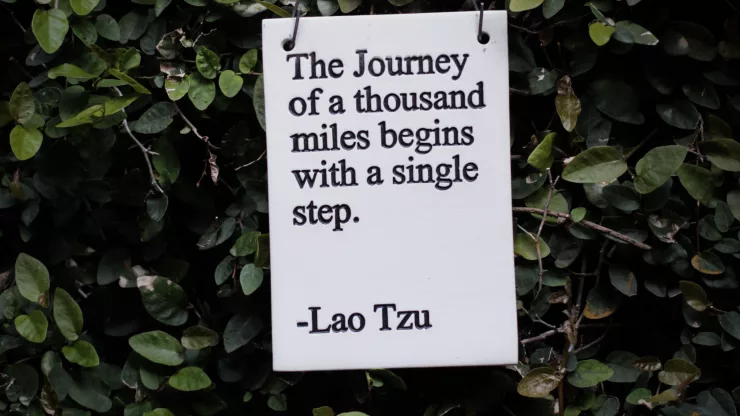Change is an inevitable part of life that we all experience at some point.
Whether it’s a new job, moving to a new city, or the loss of a loved one, life transitions can be challenging to navigate.
Understanding and managing change can help you cope with the uncertainty and stress that comes with it.
In this article, we will discuss what life transitions are, the phases of change, coping with grief and loss, practical strategies for managing change, and finding meaning and purpose in transitions.
Jump to Section
Life Transitions: What Are They?
Life transitions are periods of change that occur in our lives, whether by choice or circumstance. They can be positive or negative, planned or unexpected.
Some examples of life transitions include:
- Starting a new job
- Getting married or divorced
- Moving to a new home
- Having a baby
- Retiring
- Losing a loved one
Each of these transitions can bring about a range of emotions, from excitement and anticipation to anxiety and grief.
Understanding the Phases of Change
Change can be a difficult process, and it’s important to understand the phases of change to navigate it successfully. The four stages of change are:
-
Denial: This is the stage where we resist change and may even deny that it’s happening.
-
Resistance: In this stage, we begin to recognize that change is happening and may feel angry, frustrated, or overwhelmed.
-
Exploration: This is the stage where we start to explore new possibilities and adapt to the changes.
-
Acceptance: In the final stage, we accept the change and begin to move forward with our lives.
Understanding these stages can help us recognize where we are in the process and what we need to do to move forward.
Coping with Grief and Loss
Life transitions can be particularly challenging when they involve loss or grief.
Whether it’s the loss of a loved one, a job, or a relationship, it’s important to allow ourselves time to grieve and process our emotions.
Some strategies for coping with grief and loss include:
- Seeking support from friends and family
- Talking to a therapist or counselor
- Engaging in self-care activities like exercise, meditation, or journaling
- Joining a support group
It’s important to remember that everyone grieves differently, and there is no right or wrong way to do it.
Embracing Uncertainty and Growth
One of the most challenging aspects of life transitions is the uncertainty that comes with them.
It’s natural to feel anxious or overwhelmed when facing the unknown, but it’s also an opportunity for growth and self-discovery.
Some ways to embrace uncertainty and growth include:
- Practicing mindfulness and staying present in the moment
- Cultivating a growth mindset and seeing change as an opportunity for learning and development
- Trying new things and stepping outside of your comfort zone
- Focusing on the things you can control and letting go of the things you can’t
Practical Strategies for Managing Change
Managing change can be challenging, but there are practical strategies that can help make the process smoother. Some tips for managing change include:
- Setting realistic goals and timelines
- Breaking down the change into smaller, manageable steps
- Seeking out support and resources
- Celebrating small wins and progress along the way
- Being kind to yourself and practicing self-compassion
Finding Meaning and Purpose in Transitions
Life transitions can be an opportunity to reflect on our values, goals, and purpose in life. Some ways to find meaning and purpose in transitions include:
- Reevaluating your priorities and values
- Setting new goals and aspirations
- Exploring new hobbies or interests
- Volunteering or giving back to your community
- Seeking out opportunities for personal and professional growth
Transitions can be a time of transformation and growth, and finding meaning and purpose can help us navigate the process.
FAQ
How long does it take to adjust to a life transition?
Adjusting to a life transition can vary depending on the individual and the nature of the change. Some adjustments may take weeks or months, while others may take years.
It’s important to be patient with yourself and allow yourself time to adapt to the change.
How can I stay positive during a difficult life transition?
Staying positive during a difficult life transition can be challenging, but there are things you can do to help. Some strategies include:
- Practicing gratitude and focusing on the things you are thankful for
- Surrounding yourself with positive people and support
- Engaging in self-care activities like exercise, meditation, or journaling
- Cultivating a growth mindset and seeing change as an opportunity for learning and development
How can I help a loved one going through a difficult life transition?
Supporting a loved one going through a difficult life transition can be challenging, but there are things you can do to help. Some ways to support a loved one include:
- Listening without judgment and offering empathy and support
- Helping them identify their needs and resources
- Encouraging them to seek out professional help if needed
- Offering practical support like cooking meals or running errands
- Checking in regularly and offering ongoing support and encouragement.
Life transitions are an inevitable part of life, but they don’t have to be overwhelming or scary.
By understanding the phases of change, coping with grief and loss, embracing uncertainty and growth, and finding meaning and purpose, we can navigate life transitions with confidence and resilience. Remember to be patient with yourself and seek out support and resources when needed.
With time and effort, you can come out stronger and more fulfilled on the other side.

With a deep passion for personal development, Ben has dedicated his career to inspiring and guiding others on their journey towards self-improvement.
His love for learning and sharing knowledge about personal growth strategies, mindfulness, and goal-setting principles has led him to create My Virtual Life Coach.
Contact Ben at [email protected] for assistance.




